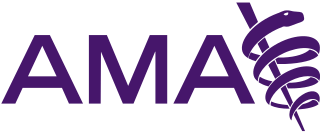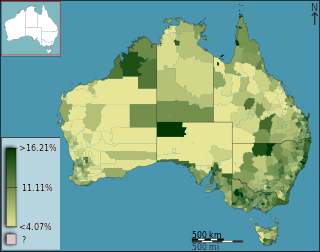Related Research Articles

Medicare is a government national health insurance program in the United States, begun in 1965 under the Social Security Administration (SSA) and now administered by the Centers for Medicare and Medicaid Services (CMS). It primarily provides health insurance for Americans aged 65 and older, but also for some younger people with disability status as determined by the SSA, including people with end stage renal disease and amyotrophic lateral sclerosis.

Medicare is an unofficial designation used to refer to the publicly funded single-payer healthcare system of Canada. Canada's health care system consists of 13 provincial and territorial health insurance plans, which provide universal healthcare coverage to Canadian citizens, permanent residents, and depending on the province or territory, certain temporary residents. The systems are individually administered on a provincial or territorial basis, within guidelines set by the federal government. The formal terminology for the insurance system is provided by the Canada Health Act and the health insurance legislation of the individual provinces and territories.
Medicare is the publicly-funded universal health care insurance scheme in Australia, operated by the nation's social security department, Services Australia. Medicare is the principal way Australian citizens and permanent residents access most health care services in Australia. The scheme either partially or fully cover the cost of most primary health care services in the public and private health care system. All Australian citizens and permanent residents have access to fully covered health care in public hospitals, funded by Medicare, as well as state and federal contributions. International visitors from 11 countries have subsidised access to medically necessary treatment under reciprocal agreements.

The American Medical Association (AMA) is a professional association and lobbying group of physicians and medical students. Founded in 1847, it is headquartered in Chicago, Illinois. Membership was 271,660 in 2022.
Abortion in Australia is legal. It has been fully decriminalised in all jurisdictions, starting with Western Australia in 1998 and lastly in South Australia in 2022. Access to abortion varies between the states and territories: surgical abortions are readily available on request within the first 16 to 24 weeks of pregnancy, although with no limit on gestational term in the Australian Capital Territory. Later term abortions generally require the approval of two doctors, though are heavily restricted in Western Australia after 20 weeks.
The Pharmaceutical Benefits Scheme (PBS) is a program of the Australian Government that subsidises prescription medication for Australian citizens and permanent residents, as well as international visitors covered by a reciprocal health care agreement. The PBS is separate to the Medicare Benefits Schedule, a list of health care services that can be claimed under Medicare, Australia's universal health care insurance scheme.

The Australian Medical Association (AMA) is an Australian public company by guarantee formed as a professional association for Australian doctors and medical students. The association is not run by the Australian Government and does not regulate or certify doctors, a responsibility which lies with the Medical Board of Australia and the Australian Health Practitioner Regulation Agency. The association's national headquarters are located in Barton, Australian Capital Territory, in addition to the offices of its branches in each of the states and territories in Australia.

The Social Security Amendments of 1965, Pub. L. 89–97, 79 Stat. 286, enacted July 30, 1965, was legislation in the United States whose most important provisions resulted in creation of two programs: Medicare and Medicaid. The legislation initially provided federal health insurance for the elderly and for financially challenged families.

Medical education in Australia includes the educational activities involved in the initial and ongoing training of Medical Practitioners. In Australia, medical education begins in Medical School; upon graduation it is followed by a period of pre-vocational training including Internship and Residency; thereafter, enrolment into a specialist-vocational training program as a Registrar eventually leads to fellowship qualification and recognition as a fully qualified Specialist Medical Practitioner. Medical education in Australia is facilitated by Medical Schools and the Medical Specialty Colleges, and is regulated by the Australian Medical Council (AMC) and Australian Health Practitioner Regulation Agency (AHPRA) of which includes the Medical Board of Australia where medical practitioners are registered nationally.
Fee-for-service (FFS) is a payment model where services are unbundled and paid for separately.

Health care in Australia operates under a shared public-private model underpinned by the Medicare system, the national single-payer funding model. State and territory governments operate public health facilities where eligible patients receive care free-of-charge. Primary health services, such as GP clinics, are privately owned in most situations, but attract Medicare rebates. Australian citizens, permanent residents, and some visitors and visa holders are eligible for health services under the Medicare system. Individuals are encouraged through tax surcharges to purchase health insurance to cover services offered in the private sector, and further fund health care.
Health insurance in the United States is any program that helps pay for medical expenses, whether through privately purchased insurance, social insurance, or a social welfare program funded by the government. Synonyms for this usage include "health coverage", "health care coverage", and "health benefits". In a more technical sense, the term "health insurance" is used to describe any form of insurance providing protection against the costs of medical services. This usage includes both private insurance programs and social insurance programs such as Medicare, which pools resources and spreads the financial risk associated with major medical expenses across the entire population to protect everyone, as well as social welfare programs like Medicaid and the Children's Health Insurance Program, which both provide assistance to people who cannot afford health coverage.
The healthcare reform debate in the United States has been a political issue focusing upon increasing medical coverage, decreasing costs, insurance reform, and the philosophy of its provision, funding, and government involvement.
Healthcare rationing in the United States exists in various forms. Access to private health insurance is rationed on price and ability to pay. Those unable to afford a health insurance policy are unable to acquire a private plan except by employer-provided and other job-attached coverage, and insurance companies sometimes pre-screen applicants for pre-existing medical conditions. Applicants with such conditions may be declined cover or pay higher premiums and/or have extra conditions imposed such as a waiting period.
There were a number of different health care reforms proposed during the Obama administration. Key reforms address cost and coverage and include obesity, prevention and treatment of chronic conditions, defensive medicine or tort reform, incentives that reward more care instead of better care, redundant payment systems, tax policy, rationing, a shortage of doctors and nurses, intervention vs. hospice, fraud, and use of imaging technology, among others.
The Independent Payment Advisory Board, or IPAB, was to be a fifteen-member United States Government agency created in 2010 by sections 3403 and 10320 of the Patient Protection and Affordable Care Act which was to have the explicit task of achieving specified savings in Medicare without affecting coverage or quality. Under previous and current law, changes to Medicare payment rates and program rules are recommended by MedPAC but require an act of Congress to take effect. The system creating IPAB granted IPAB the authority to make changes to the Medicare program with the Congress being given the power to overrule the agency's decisions through supermajority vote. The Bipartisan Budget Act of 2018 repealed IPAB before it could take effect.
The Specialty Society Relative Value Scale Update Committee or Relative Value Update Committee is a volunteer group of 31 physicians who have made highly influential recommendations on how to value a physician's work when computing health care prices in the United States' public health insurance program Medicare.

Choosing Wisely is a United States-based health educational campaign, led by the ABIM Foundation, about unnecessary health care.

The Australasian College of Sport and Exercise Physicians (ACSEP) is a not-for-profit professional organisation responsible for training, educating, and representing over 350 doctors in Australia and New Zealand. These doctors practise medicine in the specialty of sport and exercise medicine (SEM). The ACSEP is the smallest of the 15 recognised specialist medical Colleges in Australia with approximately 260 Fellows and Registrars in 2020.
References
- ↑ Otlowski, Margaret (1997). Voluntary Euthanasia and the Common Law. Clarendon Press. p. 323. ISBN 978-0-19-825996-1.